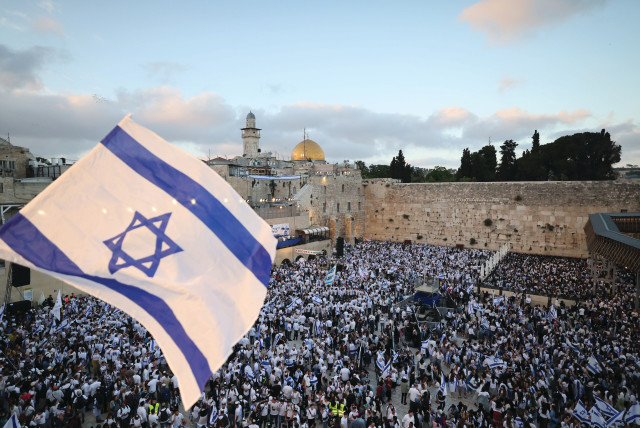What are we willing to sacrifice for genuine cohesion? - opinion

Unity isn’t just a buzzword; it’s a challenge that demands real sacrifice.
Who does not believe in unity? I am not aware of a single individual or group within our diverse society who would not say that they were in favor of national unity. The necessity for unity is obvious and clichéd, and the dangers of disunity are all too clear. With the need so blindingly clear and the stakes so perilously high, how are we getting it so wrong?
Early in the war, I was invited by a respected head of a hesder yeshiva to join him at a meeting between rabbinic leaders of Religious Zionism and the leaders of Achim LaNeshek, as it was taking place near my home in Herzliya. I asked him in jest which side of the table I should sit on, since I do not view myself as belonging to either category.
The discussion around the table was frank and at times emotional, but what stood out for me was a rhetorical question posed by the meeting’s instigator, MK Matan Kahana, in his opening remarks. Going beyond the usual call for unity, he posed the following challenge to each of the participants: “What are you willing to compromise on for the sake of unity?”
This question has been echoing in my mind over the past week, which has been a tough one for our synagogue in Herzliya, as, through no fault of our own, we were thrown into the national spotlight. I like to think of our synagogue and local community as a microcosm, bringing together all parts of Israeli society. It is an oasis of coexistence in which you can discuss the weekly portion with someone around the seuda shlishit [third meal of the Sabbath] table and, a few hours later, protest against them on the streets.
A beautiful example of this is a weekly scene light-years away from the images portrayed in the media over the weekend. It all started some months ago when a group of congregants arrived for the weekly Tanach lesson, taught by a local rabbi prior to Shabbat morning services. As the synagogue is always locked overnight and no one had a key, the class was held outdoors. During the course of the lesson, people began arriving for the weekly protest against MK Yuli Edelstein and listening in on the lesson, until one of them asked at its conclusion if they could join every week. As a result, the weekly lesson has been intentionally moved to outside the synagogue (or the foyer in the extreme heat) in order to learn together with those who have not come to pray.

This is the real story of our community in Herzliya, and it involves compromise from all sides. Many synagogue-goers would much rather the protest take place outside the Knesset than a beit knesset. Those who join the weekly lesson miss out on the key moment of the weekly protest, refraining from raising their voices when Edelstein arrives on the premises. Spending most of the summer on reserve duty, I found it disheartening to return from the unity in uniform to the divisions of the home front, but this interaction has become a weekly symbol of hope. It is complicated, but it works, and it further strengthens my belief that the complexities of our diverse society require more than simplistic calls for unity.
True unity requires sacrifice, and this has been a year of sacrifice for our people. From the ultimate sacrifice paid by our heroic soldiers and civilians to the sacrifice of the families of reservists and every displaced family and individual, amid the pain and darkness of this war, the light of selflessness has shone through.
This is not to say that everything is perfect in Herzliya or in our country. Concerns about elements of our country’s leadership and direction are becoming increasingly palpable, and the boundaries of robust but respectful disagreement are too often breached. On a personal level, I have become increasingly uncomfortable witnessing some of the ad hominem attacks against Edelstein and members of his family. When a public official’s wife or marriage is attacked, it should be uncontroversial and unpolitical to call out such behavior – as I would for any member of our community.
There is little debate about the ultimate goals of this war. Who does not want to see our hostages home, our enemies defeated, and every displaced civilian back in their home? The painful and impossible dilemmas are about how to reach these goals and what sacrifices should be made to get there. The goal of internal unity is no less important or strategic and, here too, we need to hold a similar debate. Yes, we all want unity.
The question we each need to ask ourselves is: “What compromises are we willing to make to achieve this crucial goal?”
The writer is the rabbi of Ohel Moshe Synagogue in Herzliya Pituach and the acting CEO of World Mizrachi. The views expressed are his own.
